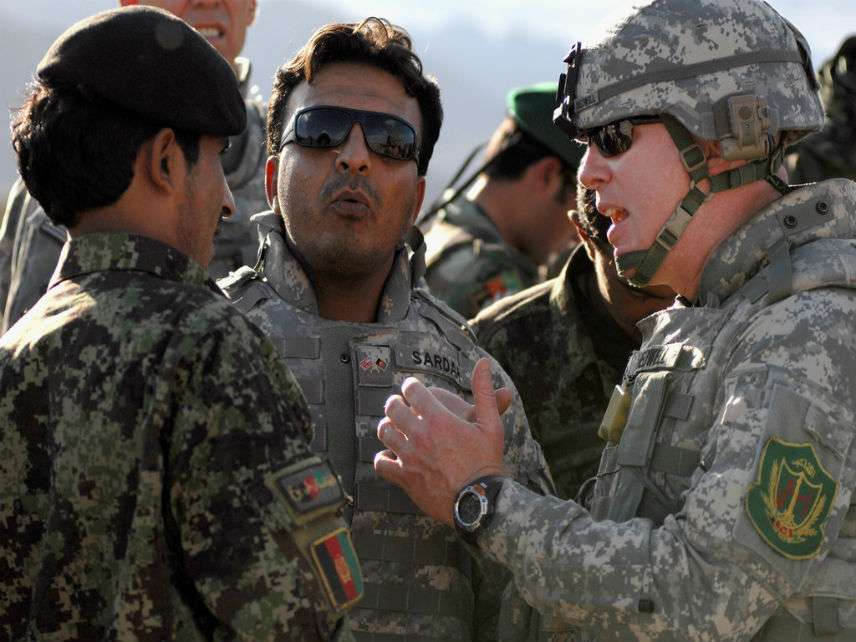Trump to Give Pentagon Power to Increase Troop Levels in Afghanistan
After 16 years and no convincing plan to finally eliminate all internal discord in sight, President Donald Trump will be giving the Pentagon free rein to add more troops to the U.S.'s ill-defined efforts in Afghanistan, reports the Washington Post and The Hill today.

The U.S.'s commanders on the ground there have been wanting at least a "few thousand" more troops for months.
As the Post reports:
The decision from the White House comes the same day [Secretary of Defense James] Mattis told lawmakers on the Senate Armed Services Committee that "we are not winning" in Afghanistan. Mattis said the Taliban was surging throughout the country and that he planned to present lawmakers with a strategy for the United States' longest-running war by mid-July.
Mattis admits that even "winning" would not mean U.S. troops could ever actually leave Afghanistan.
The new troops, if deployed, would "provide more fire and air support to the Afghans. Airstrikes and artillery, they reasoned, would give the Afghan forces breathing room to build a more effective force."
Currently, 8,400 or so U.S. troops are there, along with 5,000 NATO troops. The running tally of U.S. dead for this seemingly endless mission is over 2,000, not to mention Afghan civilians, over 3,000 of whom died in fighting in just 2016. This is a war whose only U.S.-security appropriate goal—destroying the active ability to use the country as a fomenter of terror attacks on the U.S.—was accomplished months after it began, way back in 2001.
Although our goals in Afghanistan are unclear and our means to achieve them have not yet been demonstrated, Trump is now in line with the GOP establishment as represented by Sens. John McCain (Ariz) and Lindsey Graham (S.C.) in wanting to ramp it up again. Trump has presided over troop increases in Syria and Iraq as well, despite running occasionally on rhetoric opposed to feckless interventions abroad.
The Hill reports Mattis assuring lawmakers that Trump hasn't given him "some carte blanche to draw up … a number that's out of step with the strategy."
But there really isn't any strategy. As the late Michael Hastings, whose reporting helped cost former Afghan force leader Gen. Stanley McChrystal his job, noted years ago, and nothing has changed, "U.S. forces are not fighting and dying to combat terrorists, but are fighting and dying in local political disputes."
Our military and diplomatic corps has never quite mastered the complicated tribal chaos the U.S. has chosen to stick itself in, and Hastings' reporting led him to concluded that U.S. troops leaving any specific valley in Afghanistan "is as meaningless as staying in those valleys—no impact on our national security or the stability in Afghanistan whatsoever."
Both we and our Afghan allies have done a terrible job actually using our manpower and money in any sensible or effective way, and as chronicled in Joshua Partlow's depressing but informative 2016 book A Kingdom of Their Own, nothing at all about Afghanistan's history in the time since we sent troops there gives any reason for optimism that an effective and un-corrupt government is in the cards there to satisfy every U.S. concern.
But our main such concern has been pretty much taken care of. Trump should have thought of that rather than shrugging and handing power to intensify the impossible situation over there, and inevitably kill more U.S. troops to no good effect, to the Defense Department.


Show Comments (21)